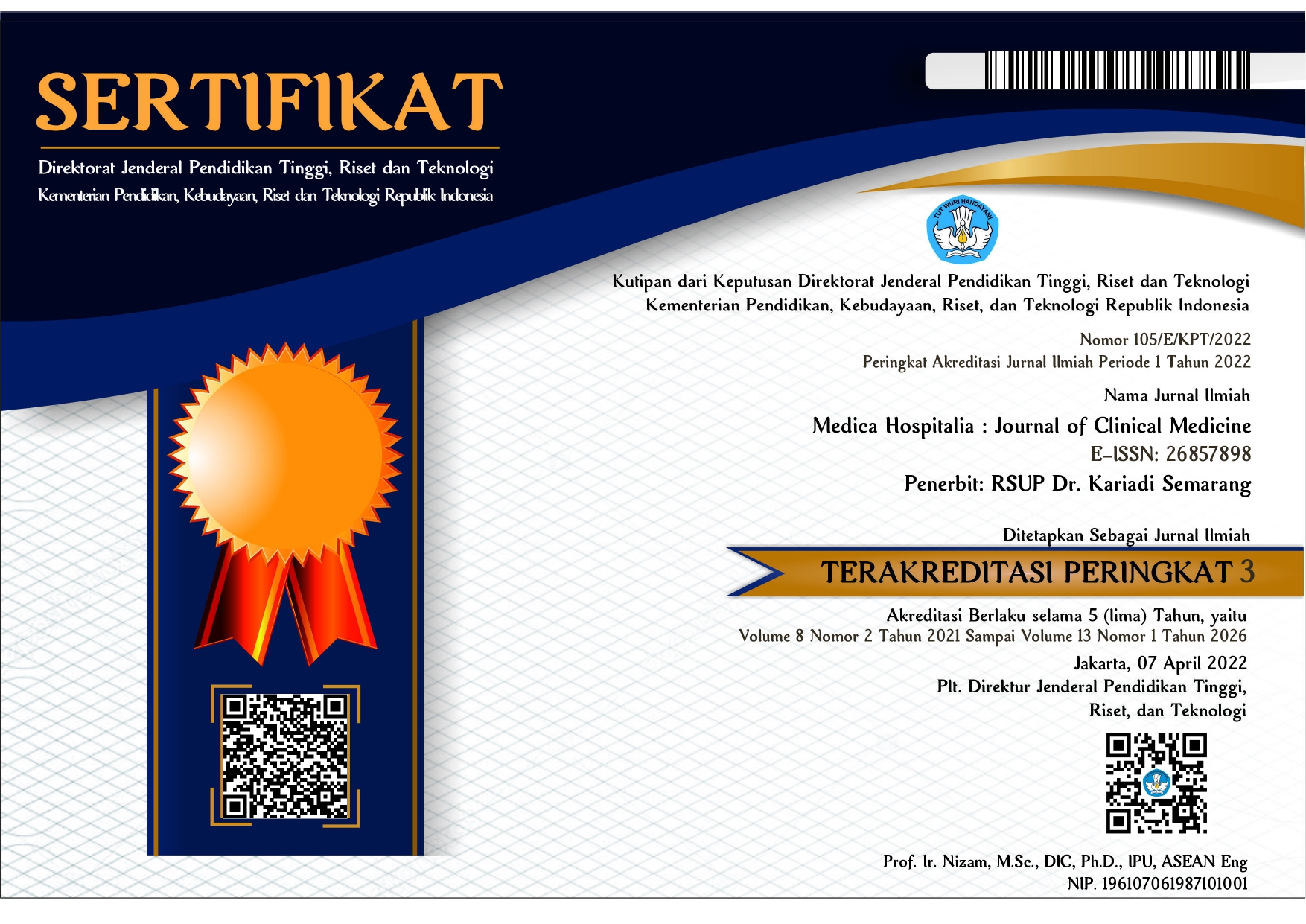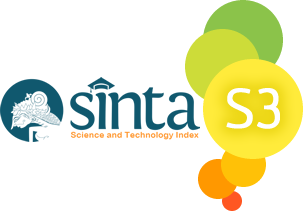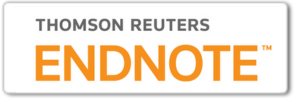The Effect of Feeding Process Stimulation on Oral Preparedness Readiness in Premature Infants
DOI:
https://doi.org/10.36408/mhjcm.v11i3.1097Keywords:
Length of stay, oral feeding stimulation, oral feeding readiness, preterm infantAbstract
BACKGROUND: Most preterm infants do not have proper sucking, swallowing, and breathing coordination which caused delay in oral feeding readiness.
OBJECTIVE: The objective of this study was to analyze the influence of feeding stimulation on the readiness of premature infant’s oral feeding.
METHOD: This study was a true experimental study that involved 44 preterm infants born between 32-34 weeks of gestational age, devided in two groups. Twenty two infants in the intervention group received positioning (mid-line control symmetric) and oral feeding stimulation, while the control group received only positioning intervention. Oral stimulation was given 8 times a day for 7 days, before starting the oral feeding program. Oral feeding readiness was measured by using a modified early feeding scale (EFS) instrument on the first and the seventh days. Data analysis using t-test dependent, independent t-test, and Mc Nemar test.
RESULT: The results showed that there was a significant effect of the intervention on EFS score (p <0.001) and also on preterm infant’s oral feeding readiness (p = 0.002). The results also showed that there was an effect of intervention on the length of stay (p=0.001).
CONCLUSION: Early oral feeding stimulation improves the infant’s oral feeding readiness and shortens the infant’s length of stay. Researchers recommend stimulation of the feeding process as an independent nursing intervention in caring for premature infants.
Downloads
References
1. Gargari SS, Kashanian M, Zendedel H, Nayeri F, Shariat M, Hagholahi F. Survival and risk factors of extremely preterm babies (< 28 weeks) in the three iranian Acta Medica Iranica. 2018;56(3):181–8.
2. Pickler RH, McGrath JM, Reyna BA, McCain N, Lewis M, Cone S, et al. A Model of Neurodevelopmental Risk and Protection for Preterm Advances in Neonatal Care. 2013 Oct;13(5S):S11–20.
3. Jepkosgei K, Ongeso A, Omuga Perceived Demographic and Socio-Economic Factors Contributing to Poor Outcome of Neonatal Sepsis at Paediatric Unit Kenyatta National Hospital. East African Journal of Health and Science. 2021 Oct 18;4(1):16–23.
4. Utami R, Gunawan IMA, Aritonang I. Pengaruh Pemberian Makanan Tambahan (PMT) Pemulihan terhadap Status Gizi pada Ibu Hamil di Kabupaten Sleman. JURNAL NUTRISIA. 2018 Mar 1;20(1):19–26.
5. Beluska-Turkan K, Korczak R, Hartell B, Moskal K, Maukonen J, Alexander DE, et al. Nutritional gaps and supplementation in the first 1000 Nutrients. 2019;11(12):1–50.
6. Bertoncelli N, Cuomo G, Cattani S, Mazzi C, Pugliese M, Coccolini E, et al. Oral Feeding Competences of Healthy Preterm Infants : A 2012;2012.
7. Arora K, Goel S, Manerkar S, Konde N, Panchal H, Hegde D, et al. Prefeeding Oromotor Stimulation Program for Improving Oromotor Function in Preterm Infants – A Randomized Controlled Indian Pediatr. 2018 Aug 20;55(8):675–8.
8. Sasmal S, Shetty AP, Saha B, Knoll B, Mukherjee S. Effect of Prefeeding Oromotor Stimulation on Oral Feeding Performance of Preterm Neonates during Hospitalization and at Corrected One Month of Age at a Tertiary Neonatal Care Unit of India: A Randomized Controlled Journal of Neonatology. 2023 Jun 9;37(2):149–58.
9. Lubbe W. Clinicians guide for cue based transition to oral feeding in preterm infants: An easy to use clinical J Eval Clin Pract. 2018 Feb 2;24(1):80–8.
10. Tian X, Yi LJ, Zhang L, Zhou JG, Ma L, Ou YX, et al. Oral Motor Intervention Improved the Oral Feeding in Preterm Infants. Medicine. 2015 Aug;94(31):e1310.
11. El Mashad G, El Saied H, Mekawy N. Effect of an early oral stimulation program on oral feeding in preterm Menoufia Medical Journal. 2021;34(1):226.
12. Asadollahpour F, Yadegari F, Soleimani F, Khalesi The Effects of Non-Nutritive Sucking and Pre-Feeding Oral Stimulation on Time to Achieve Independent Oral Feeding for Preterm Infants. Iran J Pediatr. 2015 Jun 27;25(3).
Additional Files
Published
How to Cite
Issue
Section
Citation Check
License
Copyright (c) 2024 Endah Dessirya, Herlina, Wahyuni, Iin Pusparini, mustaqimah, Dewi Hayati (Author)

This work is licensed under a Creative Commons Attribution-ShareAlike 4.0 International License.
Copyrights Notice
Copyrights:
Researchers publishing manuscrips at Medica Hospitalis: Journal of Clinical Medicine agree with regulations as follow:
Copyrights of each article belong to researchers, and it is likewise the patent rights
Researchers admit that Medica Hospitalia: Journal of Clinical Medicine has the right of first publication
Researchers may submit manuscripts separately, manage non exclusive distribution of published manuscripts into other versions (such as: being sent to researchers’ institutional repository, publication in the books, etc), admitting that manuscripts have been firstly published at Medica Hospitalia: Journal of Clinical Medicine
License:
Medica Hospitalia: Journal of Clinical Medicine is disseminated based on provisions of Creative Common Attribution-Share Alike 4.0 Internasional It allows individuals to duplicate and disseminate manuscripts in any formats, to alter, compose and make derivatives of manuscripts for any purpose. You are not allowed to use manuscripts for commercial purposes. You should properly acknowledge, reference links, and state that alterations have been made. You can do so in proper ways, but it does not hint that the licensors support you or your usage.

























